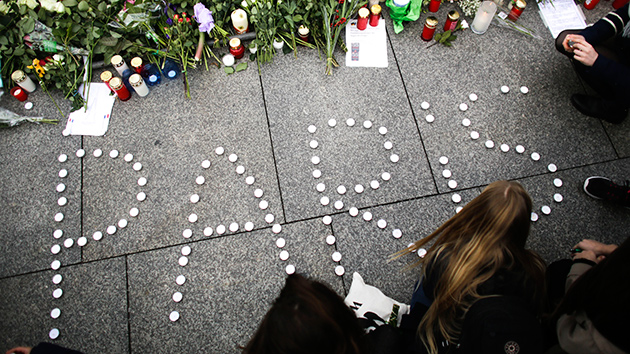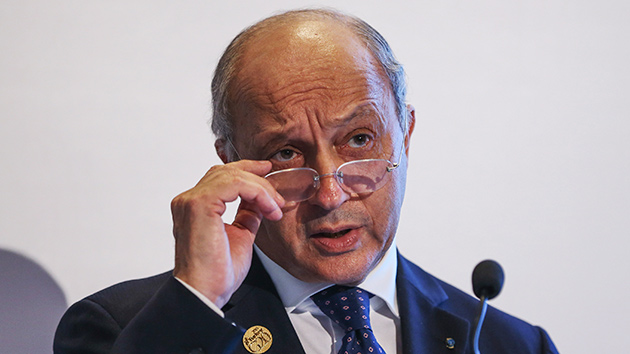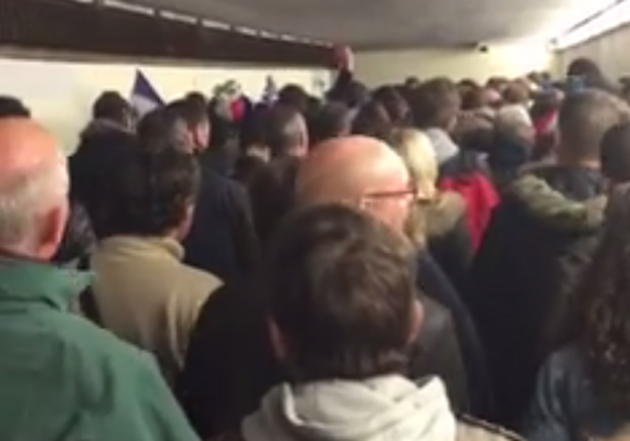
A memorial for the victims killed in Friday's attacks in Paris in front of the French Embassy in Berlin.Markus Schreiber/AP
We learned yesterday that even after Friday’s terrorist attacks that killed 129 people in Paris, global warming activists are pushing to go ahead with large protests and civil disobedience in the French capital two weeks from now.
On Tuesday morning, Paris time, representatives of a coalition of 130 environmental groups met with French Foreign Minister Laurent Fabius to argue that the rallies should be allowed to take place alongside the upcoming UN climate summit—and to hear the government’s security concerns. The climate negotiations “cannot take place without the participation or without the mobilizations of civil society in France,” read a statement released yesterday by Coalition Climat 21, an umbrella group of activists.
But even after the meeting this morning, there remains plenty of doubt about which events will be canceled and which will be permitted to take place. Paris remains under a state of emergency, and French President Francois Hollande has said parliament should extend that state of emergency for another three months.

Jamie Henn, a spokesperson for the US-based environmental group 350.org, told me Tuesday morning that the French authorities are nearing a decision on the main climate march, which had been scheduled to take place in the streets of Paris on November 29, the evening before the summit opens. That permitting decision, he says, should come from the French government either Wednesday or Thursday. “The coalition is pushing hard for it to move forward if safety can be maintained,” Henn said. Organizers had expected to draw around 200,000 to the rally, according to Reuters. Coordinated climate rallies in cities around the world are expected to continue.
“We’re still waiting for the French authorities to tell us if they think the march in Paris, and other mobilization moments around the climate talks, can be made safe and secure,” said Jean-François Julliard, Executive Director for Greenpeace in France, according to a statement. “Huge numbers are predicted for the Paris gathering. We at Greenpeace want it to happen.”
But additional protests in Paris, such as plans to block roads and form human chains at the Place de la République, scheduled for December 12, “are still under negotiation,” Henn said.
While security officials are still mulling the big November 29 March, activists say that French authorities have been pressuring them to cancel the more aggressive actions planned for the end of the summit. Those December 12 events were “always planned as civil disobedience and never had permission, so it’s not really a matter of the government banning it or not,” Henn said. “But the French authorities have made it clear they don’t want it to go forward.” Despite that, says Henn, “we’re committed to finding a way to make a strong call for climate justice at the end.”
One thing we do know: The large exhibition pavilion set up by the UN at the site of the summit for environmental groups, observers, and the general public—called the Climate Generations space—will be maintained, “but maybe with new access rules,” Henn said.
This post has been updated with more specific details about the December 12 protests.







